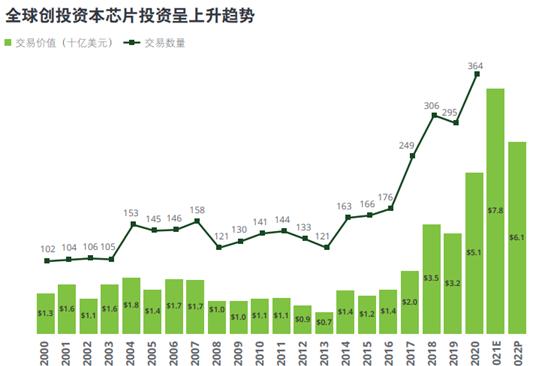Financial Associated Press (Shanghai, editor Zhou Xinyang) news, international accounting and consulting firm Deloitte released the "2022 Technology, Media and Telecommunications Industry Forecast" report, the TMT (technology, media and telecommunications) made a comprehensive forecast, its views include the global "one core is difficult to find" will continue, the streaming media service industry user churn rate will reach 30%, sports souvenirs into the NFT era, and artificial intelligence supervision will become increasingly stringent.
The semiconductor industry is still highly prosperous
The global phenomenon of "one core is difficult to find" will continue. Rising demand from consumer, industry and government chips has made the semiconductor industry scramble to cope, and the semiconductor shortage is expected to continue in 2022.
The report predicts that many types of chips will still face shortages in 2022, but not as severely as in the past year. In mid-2021, the customer waiting time will reach 20 to 52 weeks, but by the end of 2022, the chip delivery cycle will be close to 10 to 20 weeks, and in early 2023, the industry will reach a basic balance.
In the long run, the overall trend has always shown an upward growth trend. It is expected to reach $606 billion in 2022, which is almost ten times the size of 1990. Driven by the continued need for digital transformation in all aspects of the world, the semiconductor industry's share of global economic output will continue to expand.
The report predicts that global investment in semiconductor companies will exceed $6 billion in 2022, second only to the historic high of $8 billion set in 2021.

The data shows that a large part of these investments will go to Chinese companies. In the first half of 2021 alone, Global Venture Capital invested $3.85 billion in Chinese chip companies, more than the industry's total global investment in the past 20 years and 19 years.
The investment boom in venture capital is not expected to subside anytime soon. Deloitte believes that investment in semiconductors will remain high. There are four main reasons: the demand for new chips, chip design and architecture continues to grow, the valuation of technology companies is high, government investment is increasing, chip manufacturing capabilities are constantly improving, and funding and research and development plans continue to expand.
User churn from streaming media service providers is accelerating
For the streaming media service industry, the report believes that the competition of streaming media service providers has accelerated, bringing a large number of choices to global consumers, and the loss of users of various service providers is also accelerating.
According to the report, the number of paid subscription cancellations of the global streaming video-on-demand service (SVOD) will reach more than 150 million in 2022, and the churn rate in each market will be as high as 30%. However, there will be more new subscriptions than cancellations, and the number of subscriptions per capita will rise.
Service providers spend billions of dollars each year to develop and acquire programs to retain customers. Investments of this magnitude are difficult to sustain, and consumers cannot afford to see a sharp increase in subscription prices.
However, the cost of content creation and customer acquisition of service providers is unlikely to fall, and the pressure on customer acquisition and retention will continue. Deloitte advises service providers to provide more price tiers, leverage partnerships, understand customer value and learn from other competitors.
Sports memorabilia enter a new era of NFT digital
From card transactions to digital videos, sports memorabilia enter a new era of NFT (non-homogeneous tokens) digital, the report said. Global NFT transactions for sports media content will exceed $2 billion in 2022, doubling from 2021.
The so-called NFT is a unique digital representation of the medium content recorded using the blockchain. Deloitte expects that by the end of 2022, 4-5 million sports fans around the world are expected to buy or collect NFT sporting goods.
Deloitte believes that in 2022, most sports-related NFT activities will appear in sports with the largest fan base and revenue, including football, basketball, baseball, American football and ice hockey.
In the future, all sports will offer some form of NFT products, with an F1 racer who has won a world championship record in one event for several years or a football player who will play the 100th in the world championship.
Deloitte also believes that building an NFT-based sports collectibles platform will remain a very complex challenge in 2022, and parties will need to take a variety of measures to build such a platform.
Ai-power regulation will become increasingly stringent
Finally, Deloitte also gave its views on industry policies, and artificial intelligence will face increasing regulatory scrutiny in 2022, affecting many different industries.
The pace of regulation is catching up with the development of AI applications, including machine learning, deep learning, and neural networks. In 2022, there will be a broader discussion seeking to carry out AI regulation more systematically, and multiple regulations will be proposed.
Regulators are concerned that AI will create issues of fairness, bias, discrimination, diversity and privacy.
Deloitte predicts that some regions may shut down AI-driven businesses in the next two years, or continue to operate, subject to departure. Conflicting AI regulations can arise between large and important markets that companies cannot follow.